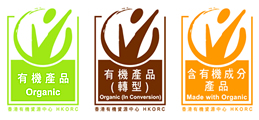1. Certification body
There are currently two local certification systems, one is the Hong Kong Organic Certification Center (HKOCC) and the other is the Hong Kong Organic Resource Center (HKORC).
The Hong Kong Organic Certification Center is the first organic certification unit in Hong Kong, hosted and coordinated by the Hong Kong Organic Agricultural Ecological Research Association. The Hong Kong Organic Certification Center has been providing organic certification for the SAR and South China since 1998. Currently, it has reached 13 households with a total of more than 5,000 acres of land. The main certified products include: organic rice, organic tea, organic lychee, longan and longan meat, and organic vegetables. and vanilla, etc.
The Hong Kong Organic Resource Center is an organic resource center established in December 2002 by the Department of Biology of Hong Kong Baptist University, the Hong Kong Organic Agriculture Association and the Green Garden Foundation, with sponsorship from the Vegetable Marketing Office Agricultural Development Fund!


Picture: The logos of the two certification centers
In terms of foreign certification, different countries and regions have their own certification agencies, which are responsible for setting standards according to local environment and laws. However, the same region has different standards. In summary: There are currently about 100 countries in the world that have Organic agriculture is mainly concentrated in Australia (about 10 million hectares), Argentina (about 3 million hectares) and Italy (about 1.2 million hectares).

2. The requirements for certification are different in each place. Taking vegetables as an example, for example, whether farm information will be disclosed, whether it comes from a sustainable farming farm, whether it complies with fair trade, environmental protection and the proportion of chemical fertilizers used, etc. The most important thing is Consumers have the right to know and verify the manufacturer's information.
3. Since each region has its own certification, it is very important to eat from the ground. There are excellent varieties in each place, such as rocket in the Netherlands, Yunnan choi sum, Italian radish, and Israel date, and the certification requirements are also relatively Rigorous and smart consumers can choose.
Therefore, the origin of the certification body is very important. You can first understand the local certification standards before purchasing the organic products and vegetables, so as to truly achieve an "organic" kitchen.










